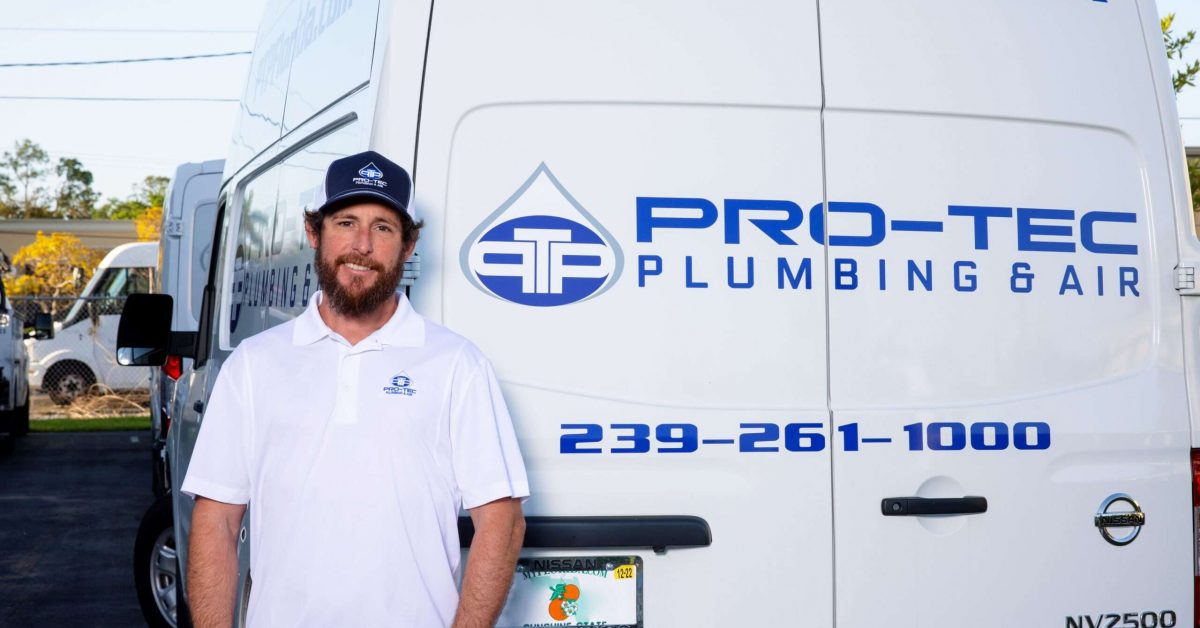Jesi Cason, who spent many years living with multiple roommates in two-bedroom houses as a self-described “broke punk kid” in East Texas, doesn’t mind sharing a house these days with her partner and two others. Only now, she’s 36 and not broke. She made six figures last year through her branding photo business, Jesi Cason Photography.
“We’re able to split up the expenses between the four of us so we can all live really comfortably,” Cason says. “That, I think, is the perfect example of the HENRYs.”
HENRY stands for “high earners, not rich yet”—a term used to describe high-earning millennials who may struggle to get ahead with today’s cost of living, which is 9% higher than the national average in Fort Myers alone, according to Payscale.
We asked Cason, who works on her own (except for the occasional contracted photo assistant), and Pro-Tec Plumbing & Air President Rick Hume Jr., whose business has grown with the region for 15 years and now includes about 60 employees, how they manage expenses in Southwest Florida, to explore concerns of high-earning millennial entrepreneurs.
A solopreneur’s perspective
Cason’s partner Peter Kolter, a full-time musician, bought their house in 2017 after saving for a down payment while living rent-free with family.
“All of my friends our age or younger, if they own a house, it’s because they had a situation like that,” Cason says. “The price of it is so much higher today than when he bought it just a few years ago; it’s crazy. We wouldn’t be able to afford it today.”
Cason said millennials should open up about how they can or can’t afford owning a home, thriving in business and funding their lifestyles, since their purchasing power differs from Gen Xers—who had the highest household incomes of any generation in 2022, according to an annual survey by the National Association of Realtors.
“Making people feel like the lifestyle you have is inaccessible to them is terrible, but making them feel like it’s accessible if they just worked hard and did the right things is also unrealistic. So many of us have help we don’t talk about,” she says, such as having financial support from family or friends.
 Savings and sacrifices
Savings and sacrifices
The price of child care is one reason Cason doesn’t plan to have kids. Instead, she’s considering using her background in disability support services to open a group home for adults with special needs. “That is a financial goal I’m working toward, but kids would be a huge financial drain,” she says.
At the height of the COVID-19 pandemic, she thought about returning to school but didn’t want student loan debt. “You have to weigh the pros and cons of all your life decisions, and there are so many more cons in the financial category than there used to be,” she says.
That doesn’t mean one can’t learn more about business before starting one of their own in this climate.
“There are books you can read, classes you can take, podcasts, mentors. You don’t have to figure it out as you go along entirely,” she says. “Having a basic level of education in how business and marketing works before you start a business will help so much.”
Piece of advice: Cason said entrepreneurs need to charge properly in order to support themselves. “Unless you have somebody that’s going to supplement your income, you just have to charge a lot,” she says. “That’s the only way you’ll stay afloat.”
An employer’s perspective
If Pro-Tec were to launch today, “it would be harder to maybe grow to the size we are,” Hume says. At 40, he is just a few years shy of being in Generation X, and he has seen how high living costs can affect business.
Hume bought his mother’s Golden Gate Estate home in Naples—where he and his brother ran Pro-Tec for the first five years—for market price in 2011. He now lives there with his wife, two daughters and a host of animals.
Though he was able to buy the home by himself back then, today Hume says, “I’d probably be looking elsewhere” to find something more affordable. “What I paid full price for is wild. We’re talking five-time multiples of what I bought it for at the time, which was market value, versus what things are now.”
Though his company has been established since 2008, Hume still must factor in how the currently soaring home costs can affect employee recruitment.
“The biggest challenge you run into business-wise right now is this area is not affordable for most working-class people to live in,” he says. “I would say it’s easily 50%, maybe more, of the company (employees) does not live in the Naples area or even Collier County itself, and has to commute every day to work with us.”
Balancing growth and life
While millennials, such as Cason may consider the cost of starting a family, Hume and others on the higher end of the millennial age bracket evaluate how to support their established households.
“The biggest personal thing for both myself and, I’m sure, a lot of parents who have kids is they have to work long days and long hours just to support their kids and get by,” Hume says. “I think anybody who’s a business owner can attest that having a work-life balance can be very challenging. Part of [the benefit of] building a company is so I have people who can operate and handle things, so I don’t have to miss stuff like that with my kids growing up.”
Piece of advice: Hume says controlled, strategic growth and having a safety net help his business ride out economic storms. Rather than expanding, he says now is the time to save, no matter the age. “Now is definitely a tough time to do things because, just like everything—groceries, property, everything is through the roof right now,” he says. “People who are smart about it, put the money away and wait for everything to tank, are the ones who can really take off.”





